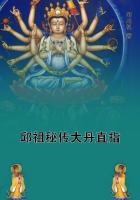We set out to meet him at Waterloo Station on a dull day of February --I, who had owned his impetuous mother, knowing a little what to expect, while to my companion he would be all original. We stood there waiting (for the Salisbury train was late), and wondering with a warm, half-fearful eagerness what sort of new thread Life was going to twine into our skein. I think our chief dread was that he might have light eyes--those yellow Chinese eyes of the common, parti-coloured spaniel. And each new minute of the train's tardiness increased our anxious compassion: His first journey; his first separation from his mother; this black two-months' baby! Then the train ran in, and we hastened to look for him. "Have you a dog for us?"
"A dog! Not in this van. Ask the rearguard."
"Have you a dog for us?"
"That's right. From Salisbury. Here's your wild beast, Sir!"
>From behind a wooden crate we saw a long black muzzled nose poking round at us, and heard a faint hoarse whimpering.
I remember my first thought:
"Isn't his nose too long?"
But to my companion's heart it went at once, because it was swollen from crying and being pressed against things that he could not see through. We took him out--soft, wobbly, tearful; set him down on his four, as yet not quite simultaneous legs, and regarded him. Or, rather, my companion did, having her head on one side, and a quavering smile; and I regarded her, knowing that I should thereby get a truer impression of him.
He wandered a little round our legs, neither wagging his tail nor licking at our hands; then he looked up, and my companion said: "He's an angel!"
I was not so certain. He seemed hammer-headed, with no eyes at all, and little connection between his head, his body, and his legs. His ears were very long, as long as his poor nose; and gleaming down in the blackness of him I could see the same white star that disgraced his mother's chest.
Picking him up, we carried him to a four-wheeled cab, and took his muzzle off. His little dark-brown eyes were resolutely fixed on distance, and by his refusal to even smell the biscuits we had. brought to make him happy, we knew that the human being had not yet come into a life that had contained so far only a mother, a wood-shed, and four other soft, wobbly, black, hammer-headed angels, smelling of themselves, and warmth, and wood shavings. It was pleasant to feel that to us he would surrender an untouched love, that is, if he would surrender anything. Suppose he did not take to us!
And just then something must have stirred in him, for he turned up his swollen nose and stared at my companion, and a little later rubbed the dry pinkness of his tongue against my thumb. In that look, and that unconscious restless lick; he was trying hard to leave unhappiness behind, trying hard to feel that these new creatures with stroking paws and queer scents, were his mother; yet all the time he knew, I am sure, that they were something bigger, more permanently, desperately, his. The first sense of being owned, perhaps (who knows) of owning, had stirred in him. He would never again be quite the same unconscious creature.
A little way from the end of our journey we got out and dismissed the cab. He could not too soon know the scents and pavements of this London where the chief of his life must pass. I can see now his first bumble down that wide, back-water of a street, how continually and suddenly he sat down to make sure of his own legs, how continually he lost our heels. He showed us then in full perfection what was afterwards to be an inconvenient--if endearing--characteristic: At any call or whistle he would look in precisely the opposite direction. How many times all through his life have I not seen him, at my whistle, start violently and turn his tail to me, then, with nose thrown searchingly from side to side, begin to canter toward the horizon.
In that first walk, we met, fortunately, but one vehicle, a brewer's dray; he chose that moment to attend to the more serious affairs of life, sitting quietly before the horses' feet and requiring to be moved by hand. From the beginning he had his dignity, and was extremely difficult to lift, owing to the length of his middle distance.
What strange feelings must have stirred in his little white soul when he first smelled carpet! But it was all so strange to him that day--
I doubt if he felt more than I did when I first travelled to my private school, reading "Tales of a Grandfather," and plied with tracts and sherry by my 'father's man of business.
That night, indeed, for several nights, he slept with me, keeping me too warm down my back, and waking me now and then with quaint sleepy whimperings. Indeed, all through his life he flew a good deal in his sleep, fighting dogs and seeing ghosts, running after rabbits and thrown sticks; and to the last one never quite knew whether or no to rouse him when his four black feet began to jerk and quiver. His dreams were like our dreams, both good and bad; happy sometimes, sometimes tragic to weeping point.














